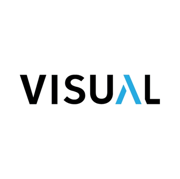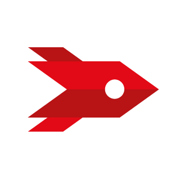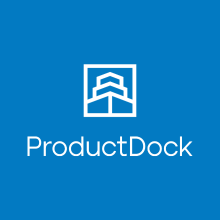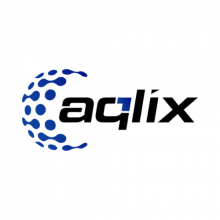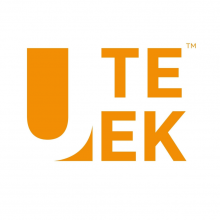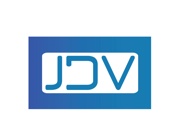Explore Top Angular Development Companies in Berlin
Software and blockchain development company, bringing the best engineering teams and talents to startups, SMEs, and enterprises around the world.
Pokermoogley is a leading iGaming software development company established in 2015.
Codete is an IT consulting and software development company. Since 2010, we’ve been supporting businesses worldwide in gaining competitive advantage b...
ELEKS is the partner of choice for many of the world’s leading enterprises and technology companies. With about 1,500 experts across Europe, the US an...
VisualMedia.io is an award-winning software development company. We constantly develop our competences in software development, eCommerce, user experi...
Services:
UFOMAMMOOT is an independent digital agency based in Berlin. We share a great passion for the vast online universe in our office space in Kreuzberg. W...
Concise Software. Building an integrated world.
Trusted by: Deloitte, M2 media group, Davinci Group, Xpertify, BringLiesel. We do believe in specialization and we are focusing only on Front-end tech...
Services:
Over 10 Millions lines of Code. DONE! Over 345 years of Clean Code under its Belt. DONE! And over 500 agile Projects completed. DONE!
We are a berlin based software collective with a very rehearsed team of equal shareholders. That creates an intrisic motivation that also comes very b...
We are a young software company from the Berlin area. We have specialized in the development of customized company software and are looking for collea...
Aqlix IT Solutions Pvt Ltd offers world-class IT services including full-stack development, customized software solutions and mobile apps.
Make Your Brand Stand Out!
Services:
- 1
- 2
Filter Angular Development Companies in Cities near Berlin
Dive deeper and find the company you need close to you or, from a specific city you prefer. Some of the best companies come from smaller places
Find more Angular Development companies around the world
TechBehemoths is the world's most advanced and user-friendly platform to match IT Companies with real clients without hustle.
The IT Industry in Berlin: City Profile
Berlin is probably the largest tech hub in Germany and one of the leading cities in digital transformation in Europe and in the world. Even though there are different opinions about the Berlin tech scene and industry opportunities, it still remains one of the most popular places for startups, tech businesses, and job seeking.
There are many sorts of data contradicting each other regarding the number of companies, average wages, and investments but still, according to the world’s most relevant sources, we picked up a selection of relevant information to understand the entire picture better.
Glassdoor mentions that the average salary in the IT industry in Berlin is around $68K/year or 53K Euros/year. On the other hand, Average Salary Survey mentions almost the same numbers - 56K Euros or $68K/year, so regarding the salary, everything is pretty clear - It’s one of the highest in Germany and in Europe but it’s lower than in Munich.
When it comes to the overall number of IT companies in Berlin there is no precise data. However, on TechBehemoths are registered 220+ software companies, web, and digital agencies but the number is way higher.
Berlin is also a great place for startups - only in 2019 startups received $5.9Bn. The investments are among the highest in Europe, but twice less than London. According to an article published on Sifted, there is more likely to get funds in Berlin at an early stage of a startup rather than at a post-seed stage. And again, compared to other top tech hubs in Europe, Berlin is a place for early-stage startups as the number of startups at a later stage is considerably lower.
Overall, Berlin is a great place for all sorts of IT businesses, web agencies, and digital companies. It has relatively cheap prices for rent and an active lifestyle - an advantage that attracts young professionals. Considering Berlin as a place for your new business or hiring a digital partner from Berlin is a good option and it has good chances for ending up in a successful business story.
What is Angular and what are its benefits for your projects?
Angular (formerly AngularJS) is a popular open-source web application framework maintained by Google and a community of developers. It's used for building dynamic, single-page web applications (SPAs) and web-based applications in general. Angular provides a structured and organized way to create complex web applications by extending HTML with additional features and enabling the development of interactive, responsive, and maintainable front-end web interfaces. Here are some key aspects and concepts of Angular:
-
Component-Based Architecture
-
Templates
-
Directives
-
Dependency Injection
-
Services
-
Routing
-
Observable and RxJS
-
Modules
-
Testing
-
Cross-Platform
Angular's structured approach, strong tooling, and vibrant ecosystem of libraries and extensions make it a powerful framework for building modern web applications. It is particularly well-suited for large and complex projects where maintainability and scalability are crucial.
Companies may choose Angular over other front-end frameworks for their projects for a variety of reasons, depending on their specific needs and priorities.
-
Google Backing: Angular is developed and maintained by Google. This association often gives companies confidence in its long-term support, stability, and continuous improvement. Google's involvement is seen as a sign of reliability and commitment to the framework.
-
Mature and Established: Angular has been around for a while and has a strong track record of being used successfully in large-scale enterprise projects. It has a well-defined architecture and best practices, which can be beneficial for maintaining and scaling applications over time.
-
TypeScript Support: Angular is built with TypeScript, a statically-typed superset of JavaScript. TypeScript provides better tooling, code maintainability, and catches errors at compile time, which can reduce bugs and enhance code quality, making it attractive to companies that prioritize robust code.
-
Full-Featured Framework: Angular provides a comprehensive set of tools, libraries, and features out of the box, including routing, form handling, HTTP client, and more. This can save development time and effort compared to integrating multiple third-party libraries in other frameworks.
-
Two-Way Data Binding: Angular offers powerful two-way data binding, which allows for automatic synchronization between the data model and the view. This feature can make it easier to develop interactive and responsive user interfaces.
-
Large and Active Community: Angular has a large and active community of developers and a wealth of resources, including documentation, tutorials, and third-party libraries. This can be beneficial for finding solutions to common problems and getting support when needed.
-
Enterprise-Ready: Angular provides features like dependency injection, modularity through modules, and a strong emphasis on testability. These characteristics are well-suited for building robust and maintainable enterprise-level applications.
-
Strict Coding Standards: Angular enforces a set of coding standards and best practices, which can lead to more consistent and readable code. This can be important for companies with multiple developers working on the same codebase.
-
Cross-Platform Development: Angular can be used for building both web and mobile applications. Companies looking to develop applications for multiple platforms may choose Angular for its ability to share code between web and mobile apps using technologies like NativeScript or Ionic.
-
Integration with Backend Technologies: Angular can easily integrate with various backend technologies and APIs. This makes it suitable for projects where the front end needs to communicate with different types of server-side applications.
-
Security Features: Angular provides built-in security mechanisms to help prevent common web vulnerabilities like Cross-Site Scripting (XSS) and Cross-Site Request Forgery (CSRF). This can be crucial for projects with high security requirements.
-
Ecosystem and Tooling: Angular has a rich ecosystem of tools, extensions, and IDE support, including Angular CLI for project setup and management. This can streamline development workflows and improve productivity.
Ultimately, the choice of Angular or any other framework depends on the specific project requirements, the development team's expertise, and the company's long-term goals. Companies evaluate various factors to determine which framework aligns best with their needs, resources, and priorities.




